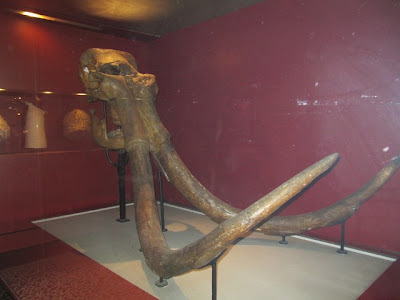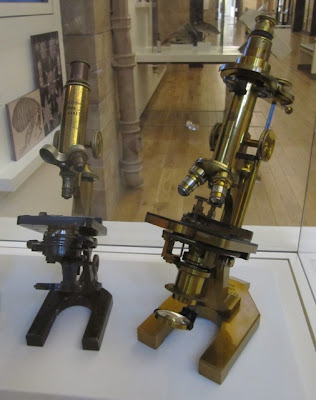Richard Owen, Superintendent of the natural history departments of the British Museum saw that the departments needed more space. Since space at the British Museum site was limited, this meant they needed a separate building. Land in South Kensington was purchased, and in 1864 a competition was held to design the new museum.
The winning entry was submitted by civil engineer Captain Francis Fowke but he died shortly afterwards. The scheme was taken over by Alfred Waterhouse who substantially revised the agreed plans, and designed the façades in his own idiosyncratic Romanesque style. The original plans included wings on either side of the main building, but these plans were abandoned for budgetary reasons. The space these would have occupied are now taken by the Earth Galleries and the Darwin Centre.
Work began in 1873 and was completed in 1880. The new museum opened in 1881, although the move from the old museum was not fully completed until 1883. Both the interiors and exteriors of the Waterhouse building make extensive use of terracotta tiles typical of high Victorian architecture. These tiles were used to resist the sooty climate of Victorian London, and were manufactured by the Tamworth-based company of Gibbs and Canning Limited.
 |
| Dippy the 32m long replica Diplodocus |
The tiles and bricks feature many relief sculptures of flora and fauna, and represent the past and present diversity of nature. Living and extinct species featured within the west and east wings respectively. This explicit separation was at the request of Owen, and has been seen as a statement of his contemporary rebuttal of Darwin's attempt to link present species with past through the theory of natural selection.
 |
| Charles Darwin |
 |
| Triceratops skeleton |
 |
| Tyrannosaurus Rex moving model |
 |
| Arsinoitherium Zitteli |
 |
| Mammoth skull |
 |
| 28.3m long model Blue Whale |
 |
| Model of Archie the 8.6m long Giant Squid |
 |
| Japanese Spider Crab |







No comments:
Post a Comment